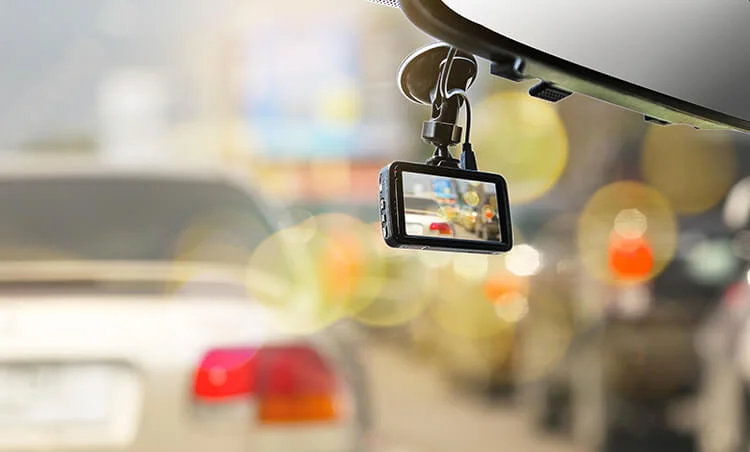Dash cams, small windshield-mounted cameras, offer increased security and peace of mind for drivers. However, with their growing popularity, understanding the legal landscape surrounding dash cam use in North Carolina is crucial. This article explores regulations, best practices, admissibility of dash cam footage in court, and privacy concerns.
Dash cams record your driving experiences, capturing vital footage in case of accidents, traffic violations, or other incidents. They provide a sense of security and can offer invaluable evidence when determining fault or liability in the event of a mishap. In North Carolina, dash cams are becoming commonplace, but navigating the legal complexities around their use is important.
Legality of Dash Cams in North Carolina
- Windshield Obstructions: North Carolina law prohibits objects from obstructing a driver’s clear view of the road. Therefore, placing a dash cam in a position that hinders driving is illegal. The best mounting locations are usually behind the rearview mirror or on the lower portion of the windshield.
- One-Party Consent Laws: North Carolina operates under a “one-party consent” law. This means you may legally record a conversation as long as you are a participant. If your dash cam has audio recording capabilities, you must be part of the conversation for it to be legal. It’s illegal to record conversations you’re not involved in.
Using Dash Cam Footage as Evidence
Dash cam footage can be valuable evidence in legal proceedings involving car accidents or traffic incidents. Here’s what you need to know about the admissibility of dash cam footage in a North Carolina court:
- Admissibility: In general, dash cam footage is admissible in North Carolina courts, provided it meets some criteria. The footage must be relevant to the case, authenticated (shown to be a true representation of the events), and not acquired illegally.
- Factors Affecting Admissibility: Several factors can impact a judge’s decision on whether to allow dash cam footage as evidence:
- Clarity: Poor-quality or blurry footage might be less persuasive.
- Relevance: The recording should directly relate to the case at hand.
- Obstructions: If vital parts of the video are blocked, it may be less useful.
- Tampering: Any signs of alteration or editing can undermine the footage’s credibility.
Privacy Considerations
While dash cams offer safety benefits, they also raise privacy concerns. It’s essential to use your dash cam responsibly to avoid violating the privacy rights of others.
- Bystanders and Conversations: Be mindful that your dash cam might capture bystanders or conversations of people in other vehicles. In such cases, it’s best practice to blur faces, license plates, and disable audio recording when not actively involved in conversations inside your vehicle.
- Private Property: Avoid focusing your dash cam on private properties for extended periods.
Best Practices for Dash Cam Use
Following these guidelines will ensure you benefit from your dash cam while respecting legal considerations:
- Positioning: Place your dash cam in a location that minimizes windshield obstruction. In North Carolina, around the rearview mirror or lower on the windshield are usually safe locations.
- Audio Settings: Understand how to disable your dash cam’s audio recording when necessary to comply with North Carolina’s one-party consent law.
- Data Storage: Securely store dash cam footage, deleting irrelevant recordings regularly. Develop a clear procedure for saving and backing up essential footage.
- Inform Passengers: Be transparent and let passengers know they are being recorded, especially if your dash cam has audio capabilities.
Conclusion
Dash cams offer numerous benefits for drivers in North Carolina. They contribute to road safety, aid in accident resolution, and provide drivers with a feeling of security. By understanding North Carolina’s dash cam regulations, audio recording laws, and following best practices, drivers can maximize the benefits of this technology while upholding legal and ethical considerations.
Additional Considerations
While North Carolina doesn’t have specific laws targeted at dash cams, it’s worth considering additional guidelines to enhance your dash cam experience:
- Insurance Discounts: Some insurance companies in North Carolina might offer discounts to drivers using dash cams. Check with your provider to see if you qualify.
- Commercial vs. Personal Use: If you are using a dash cam in a commercial vehicle or for business purposes, additional regulations or company policies might apply. Consult with your employer.
- Technology Features: When choosing a dash cam, consider features such as video quality, night vision, memory capacity, GPS tracking, and whether the audio recording function can be easily toggled on and off for compliance with laws.
Sources
To support the information in this article and for further research, here are some credible sources:
- North Carolina General Statutes: The official laws of North Carolina (https://www.ncleg.gov/). Search for relevant sections addressing windshield obstructions and audio recording laws.
- Rhino Law Firm, P.C.: Article “Can You Use Dash Cam Footage as Evidence in North Carolina?” (https://www.carolinaaccidentattorneys.com/auto-claims/can-you-use-dash-cam-footage-as-evidence-in-north-carolina/)
- Audet & Partners, LLP: Article “Should I have a dashcam in my car in North Carolina?” (https://www.augerlaw.com/faq/north-carolina-law/car-accident-faq/should-i-have-a-dashcam-in-my-car/)
- BlackboxMyCar: Page “Are Dash Cams Legal in My Area? Dash Cam Laws in Every US State” (https://www.blackboxmycar.com/pages/are-dash-cams-legal-in-my-area-dash-cam-laws-in-every-us-state)
Disclaimer: This article offers legal information but doesn’t constitute legal advice. It’s recommended to consult with an attorney for specific questions about dash cam regulations in North Carolina and their application to individual circumstances.



